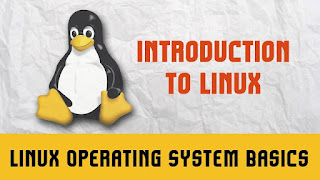Linux is a UNIX-based working framework. Its unique maker was a Finnish understudy named Linus Torvalds, even though being 'open source' it has changed an extraordinary arrangement since its unique origination. It has a place with no one and is allowed to download and utilize. Any progressions to it are open for all to embrace, and subsequently, it has formed into an extremely incredible OS that is quickly acquiring prominence around the world, especially among those looking for an option in contrast to Windows.
In 1991, equipment was extending quickly, and DOS was the lord of working frameworks. Programming improvement was slower, and Macs, while better, we're adding a lot pricier than PCs. UNIX was developing, however around then in its set of experiences, the source code was desirously protected and costly to utilize. Linus Torvalds was a Helsinki college understudy who loved messing with programming and PCs, and in 1991 he declared the production of another center working framework that he had named Linux. It is presently quite possibly the most utilized framework for the PC and is especially reasonable for organizations with few IT financial plans. Linux is allowed to utilize and introduce, and is more solid than practically any remaining frameworks, running for a long time and even a long time without a reboot being important.Advantages and Benefits of Linux
One of the critical advantages of open source programming, for example, Linux is that since it has no proprietor, it tends to be repaired without an asset to a permit proprietor or programming owner. Organizations, hence, have the adaptability to do as they wish with the OS without agonizing over adjusting to complex permit arrangements.
The significant benefit of Linux is its expense: the center OS is free, while numerous product applications likewise accompany a GNU General public License. It can likewise be utilized at the same time by huge quantities of clients without easing back down or freezing and it is extremely quick. It is an amazing systems administration stage and performs at ideal effectiveness even with minimal accessible hard plate space.
Linux additionally runs on a wide scope of equipment types, including PCs, Macs, centralized servers, supercomputers, some mobile phones, and mechanical robots. Some really like to double boot Linux and Windows while others lean toward Linux and Mac OS. System76 machines come pre-introduced with Linux like Ubuntu, a Debian dispersion of Linux. This is the most famous conveyance of Linux for PCs.
Linux Vs Windows
The principal advantages and benefits of Linux over other working frameworks, especially Microsoft Windows, are:- It is allowed to utilize and convey.
- The backing is free through online assistance locales, sites, and discussions.
- It is truly solid – more so than most other working frameworks with not very many accidents.
- An enormous measure of free open source programming has been produced for it.
- It is impervious to malware like spyware, adware, and infections.
- It runs in a wide assortment of machines that can't be refreshed to utilize fresher Windows forms.
- Since the source code is apparent, 'secondary passages' are handily spotted, so Linux offers more noteworthy security for delicate applications.
- Linux offers a serious level of adaptability of arrangement, and critical customization is conceivable without adjusting the source code.
The Linux working framework is broadly utilized by both home and business clients, and its use is expanding day by day. It is viewed as that Linux will, at last, overwhelm Microsoft Windows as the most famous working framework, which could likewise open the entryway further for all the more free programming like Open Office, The Gimp, Paint, Thunderbird, Firefox, and Scribus. It is not difficult to introduce and run close by your current working framework, so check it out, because it is likewise simple to eliminate if you don't care for it – which is impossible.
Introduction to Linux OS: Frequently Asked Questions
1. Why is Linux open source?
Linux was made to give a working framework that wasn't restrictive, and that could be changed by anybody. This is the motivation behind why from the earliest starting point it has been open source. Truth be told, before Linux was called Linux, it was called Freeax (Free Unix).
2. What is the GPL?
GPL (GNU General Public License) is the permit under which a great deal of free programming is dispersed. It is the permit under which the absolute most mainstream free programming programs are, a few of them would be the Linux part and the GCC compiler. It concedes the clients of the said programs the rights to run, share and adjust the product.
3. What amount does Linux cost?
Generally, it doesn't cost a penny. Notwithstanding, a portion of the venture circulations of Linux like Red Hat does include some significant downfalls that are paid forthright or as a membership.
4. For what reason is it sans Linux?
Linux is appropriated under GPL and to follow GPL, the product bundle should be open source and free.
5. How does Linux bring in cash?
Linux advancement is ignored by the Linux Foundation which finances the improvement of the bit. Organizations that straightforwardly or in a roundabout way use Linux inside their associations/items by and large put a ton of assets towards the improvement of the venture to make it more dependable and secure.
6. How mainstream is Linux?
As an overall client's OS, Linux isn't a standard alternative. In any case, with regards to workers and building vigorous foundations, Linux is by a long shot the most mainstream choice.
7. Is Linux too hard to even think about comprehension? I heard there is no GUI.
It depends on one individual to another. Linux requires some programming foundation as a large portion of the things are basically done using the terminal. The accessibility of GUI depends from distro to distro. Ubuntu accompanies a GUI while Arch Linux is completely terminal based.
8. What are Linux Distributions or Distros?
A Linux distro or appropriation is a working framework based on top of the unreservedly disseminated Linux portion. A portion of the famous ones are Ubuntu, Linux Mint, Fedora, and so forth
9. Which Distro would it be advisable for me to introduce?
It relies upon your utilization case. For a broad examination, check our post: Which Flavor of Linux is Best for Me?
10. How secure is Linux?
Security is a relative term, you can't say Linux is totally secure or it's superior to Windows/Unix as far as security. Malware and endeavors exist on every single significant stage. The motivation behind why Windows has more infections than Linux is because an aggressor can influence a bigger crowd when they target Windows contrasted with Linux.







